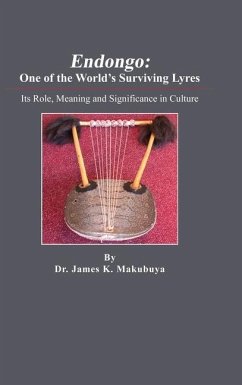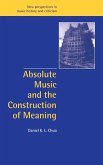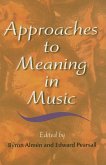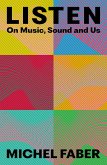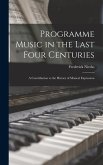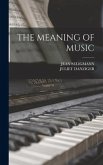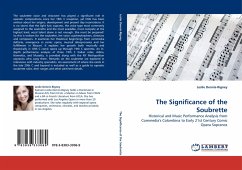The theme of this book is the "Significance of Folk Musical Instruments." I was prompted to write this book because, from an early age, I was fascinated not only by the visible appearances of folk instruments, but also by the entertainment roles I saw those instruments perform during the cultural events. So, as I went to advanced studies in ethnomusicology, I became very interested in organology, which is a sub-branch that deals with the evolution and development of musical instruments. The more I tried to learn how to play a number of folk instruments from different global cultures, the more I realized that folk instruments are used not only as objects that may sound differently, but also as tools used differently from culture to culture to enhance the respective cultural events, rituals and ceremonies. Therefore, this book on Endongo, presents to the interested or curious reader/s the opportunity to see and appreciate the role/s, meaning/s, and significance folk musical instruments have or play in cultures. Differently put, this book offers the would be curious reader/s the opportunity to examine and realize that folk musical instruments in all cultural traditions are more than just sound production objects. By reading this book, one would realize that there are also a number of inter-related subdisciplines the collectivity of which are realized and culminate not only in the construction process of the instrument/s, but also in the cultural functions for which folk instruments are used. Summarily put, this Endongo book is a case study that reveals the critically important folk cultural values that eventually reflect both the aesthetic and the symbolic meanings attached to folk musical instruments by cultures. About the Author The author, Dr. James K. Makubuya, is by profession both a teacher and performing musician. He received his B.A. in Music and English Literature from Makerere University, Uganda, then a Master of Music in Western Classical Music from the Catholic Univ. of America, Washington DC, and finally a Ph.D. in Ethnomusicology from the University of California Los Angeles. This book was written while he was serving as an associate professor of music at Wabash College in Crawfordsville, IN. USA. He has and continues to make frequent trips to many different countries to do fieldwork projects examining the meaning and significance of folk music and musical instruments in the respective musical traditions and cultures. As an accomplished instrumentalist, dancer and choreographer, James has had the opportunity to study with several master musicians from various musical traditions from East and West Africa as well as Japan. With a disciplinary focus and fieldwork research in ethnomusicology, his published articles have appeared in the Galpin Society Journal, Journal of African Music, Society for Ethnomusicology Journal, and the International Harp Journal. The author has performed music concerts at Carnegie Hall, New York City, NY. Museum of Making Music, Carlsbad, CA., Brooklyn Academy of Music, Brooklyn, NY., Santa Fe Chamber Music Festival, NM., Eastman School of Music, University of Rochester, NY., and the Canadian Museum of Civilization, Ottawa, Canada. Before coming to the US., he was also the artistic director of CACEMCHO, which was Uganda's Catholic national choir of 150 people. He led that choir to several successful international performance tours. The latter included tours to Israel, Italy and Germany. In Rome, Italy, he conducted a choir performance during a mass celebrated by Pope John Paul II in St. Peter's Basilica. James has also performed on the soundtrack to the movie Mississipi Masala and several television movies and documentaries. To the present day, he has made and released three CD recordings including: (i) The Uganda Tropical Beat, (ii). Taata Wange, and (iii). Watik, Watik: Music from Uganda.
Hinweis: Dieser Artikel kann nur an eine deutsche Lieferadresse ausgeliefert werden.
Hinweis: Dieser Artikel kann nur an eine deutsche Lieferadresse ausgeliefert werden.

